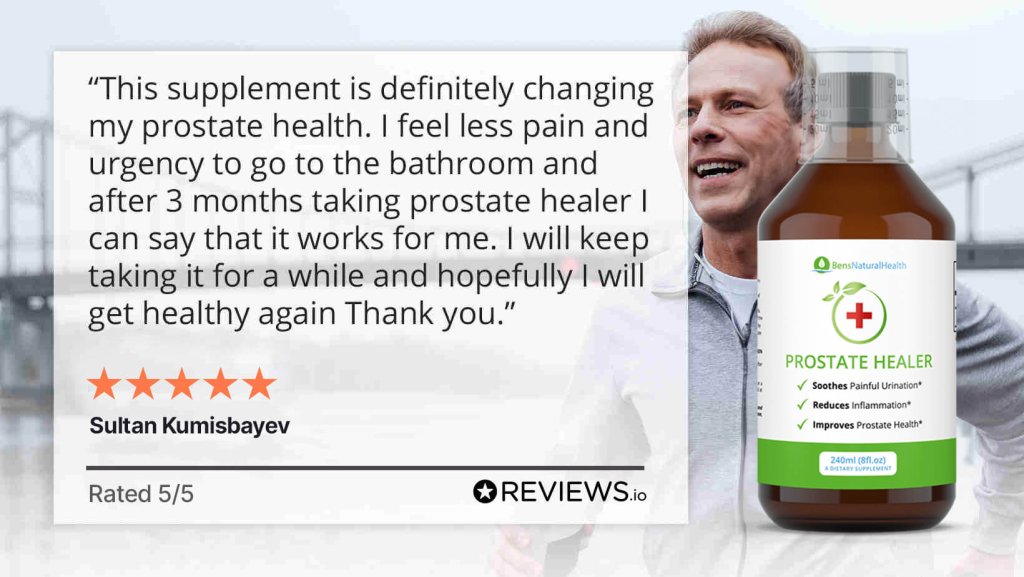A burning feeling after peeing is not always pointing to an infection. Other possible causes include painful bladder syndrome, urethral stricture, prostatitis, and kidney disease.
Dysuria refers to a burning or painful sensation when you pee (urinate). Men and women of any age can experience dysuria, but it’s more common in women. Urinary tract infections (UTI) are linked with dysuria. Treatment ranges from antibiotics, to avoiding irritants to treating the underlying medical problem.
Is it normal to burn after peeing?
No, it’s not normal to burn after peeing. The burning sensation when urinating is usually a sign that your body is trying to tell you something. Your body is sending a message that something isn’t right through the appearance of various symptoms.
In this case, burning after urinating means there’s a bigger problem (that doesn’t have to be dangerous) you need to address. If the problem persists, you may want to see a doctor.
Get 10% Off Our Products!
- Sign up to our newsletter
- Get Your FREE PSA Lowering Diet Plan
- Be the first to hear about sales and promotions
- Stay up to date on our latest health news
7 common causes in men and women
Burning and painful sensations when urinating may occur for several reasons. Some of the most common causes of burning after urinating include:
Urinary tract infection (UTI)
UTI can result from bacterial infection or inflammation in the urinary tract. Women are more likely than men to develop UTIs due to shorter urethra (1). The burning sensation is one of the most common symptoms of UTIs.
Sexually transmitted infection (STI)
Burning sensation after urinating may also appear in men and women with STIs such as gonorrhea, genital herpes, and chlamydia.
Cystitis
Inflammation of the bladder lining may also manifest itself through a burning sensation after urinating. The most common type of cystitis is interstitial cystitis or painful bladder syndrome.
Prostatitis
Inflammation of the prostate gland may also induce various symptoms, and a burning sensation after urinating is one of them.
Urethritis
Inflammation of the urethra due to bacterial infection can cause pain and burning feeling during or after urination.
Pelvic inflammatory disease (PID) in women
PID affects the ovaries, fallopian tubes, cervix, and uterus. The condition causes various symptoms, including painful or burning urination, painful intercourse, and others.
Epididymitis
Inflammation of the epididymis, located at the back of the testicles, can also manifest itself through a burning sensation after urinating.
Other causes of burning sensation after urinating include kidney stones, some medications, and obstructive uropathy. The latter refers to a bladder, ureter, or urethra obstruction that causes urine to flow back to the kidneys.
Hygiene products such as soaps and lotions can also cause irritation and a burning sensation while urinating.
Ben’s Prostate Healer For Bladder & Prostate Health
Prostate Healer is a safe, proprietary, unique blend of the world’s 9 most powerful prostate healing and rejuvenating herbs.
Ben’s Prostate Healer is formulated to fight against prostate diseases like prostatitis and BPH, protect bladder health, provide symptomatic relief from urinary tract infections, and reduce inflammation.
It works on the prostate, kidney, and bladder simultaneously, coaxing cells gently to resume normal function.
If you’re like many men that use the formula, you’ll see a reduction in the number of times you get up to go to the bathroom to urinate, plus see an improvement in the flow of your urine.

Home Remedies to Reduce Pain While Peeing
Although the burning sensation after urinating can be quite stressful, there’s a lot you can do to feel better and stop this problem. Below, you can see what you can do about it.
1) Stay hydrated
The most important thing to do in this situation is to stay hydrated. At first glance, it may seem you need to reduce water intake so that you don’t go to the bathroom frequently and avoid the burning sensation. But, by staying hydrated, you’re ensuring the kidneys pass enough urine to eliminate bacteria that cause inflammation or infection.
Increasing your water intake can prevent infections such as UTIs from returning (2). Aim for eight glasses of water during the day. If you tend to forget, you can always set up a reminder to drink some water.
2) Apply a warm compress
Applying a warm compress can help relieve bladder pressure and reduce the intensity of pain.
Ideally, you should apply a warm cloth, heating pad, or any other warm object onto the lower abdomen for five minutes. Wait a few moments, and then reapply the warm compress. Doing so can also help relieve the heaviness you may have in the pelvic region due to infections, inflammation, and other issues.
3) Get more vitamin C
Vitamin C is well-known for its potential to boost the strength of the immune system. That’s exactly why you need to increase your intake of this vitamin unless you take enough already.
In most cases, the burning sensation after urinating stems from inflammations and infections. Both scenarios indicate your immune system has become weakened.
By increasing the consumption of vitamin C, you can strengthen immunity and make it more equipped to beat infection or inflammation. That way, you can also stop the burning sensation after urinating.
Fortunately, you can get enough vitamin C through diet alone by increasing your intake of citrus fruits and other fruits and vegetables.
Supplemental vitamin C may irritate your bladder, so you should primarily focus on obtaining this micronutrient from your diet.
4) Try horseradish
Horseradish is a root vegetable well-known for its spicy flavor and pungent odor. Native to southeastern Europe and western Asia, horseradish holds major health potential.
For many centuries people have been using horseradish for different purposes, including fighting respiratory issues, cancer, and infections.
Evidence confirms horseradish exhibits antibacterial properties (3). This root can kill bacteria by damaging their cell walls. That makes it an excellent choice to fight bacterial infections that cause a burning sensation after urinating.
To use horseradish for this purpose, you need to consume it three times a day with a little bit of milk or water. Doing so can eliminate or minimize pain and burning after urination.
5) Use fenugreek seeds
Fenugreek is a plant similar to clover, and it is well-known for its seeds, which are used in foods and medicine.
Women can use fenugreek seeds as a home remedy for burning after urination. They work by improving pH levels in the vagina and thereby prevent or reduce the risk of infection. Plus, fenugreek seeds can prevent the buildup of toxins in the body.
You can use fenugreek seeds to manage the burning sensation after urinating in several ways. The best way is to add a teaspoon of powdered seeds into a glass of buttermilk and drink it twice a day.
Another thing you can do is combine a teaspoon of seed powder with one tablespoon of raw honey. Combine the two ingredients and take them two to three times a day.
6) Give cucumber a try
Everyone loves cucumbers, and luckily you can easily find them. Diuretic properties make cucumbers an ideal food for persons with a burning sensation after urinating.
After all, cucumbers are 95% water, which is why they keep you hydrated. They can aid in toxin removal and regulation of body temperature.
In order to manage the burning sensation when urinating, you may want to combine one cup of cucumber juice with one tablespoon of raw honey and lemon juice. Combine the mixture thoroughly and drink twice a day. Plus, you can also eat two to three cucumbers a day.

7-15) Other natural remedies
Besides the above-mentioned, other natural remedies to take care of this problem include:
- Drinking cranberry juice
- Focusing on personal hygiene
- Wearing clean underwear every day
- Drinking coconut water
- Adding lemon juice into warm water with raw honey
- Adding one teaspoon of baking soda to a glass of water and drinking the mixture
- Combining apple cider vinegar with water and honey
- Eating blueberries
- Eating natural yogurt
16) Doctor-recommended treatment
Doctor-recommended treatment for burning sensation when urinating depends on the underlying cause. For UTIs, STIs, or other bacterial infections, a patient may receive a prescription to take antibiotics.
The doctor may also prescribe or recommend medications that calm the irritated bladder.
Managing the underlying cause of the burning sensation when urinating can also help eliminate symptoms.
Get your FREE bladder diary
- Daily bladder diary
- Better understand your urinary symptoms
- Step-by-step guide
How long does it take for burning pee to go away?
The answer to this question depends on the underlying cause of this problem. For example, UTIs may go away within 24 to 48 hours after initiation of the treatment. As the infection resolves, so do the symptoms, such as burning after urination.
Kidney infections may take up to a week or longer to clear. Prostatitis may take two to six weeks after initiation of treatment to go away.
Some causes of burning sensation when urinating can be stubborn to treat. A good example is interstitial cystitis, for which it may take up to four months to start feeling better.
In other words, how long it takes for the burning sensation to go away depends entirely on the causes behind it. Some causes may go away within a few days or a week, whereas others need more time than that. That’s why it’s important to be proactive about this issue.
Conclusion
A burning sensation after urinating is a symptom of a bigger problem, not a disease itself. In most cases, this symptom occurs due to urinary tract infections. But, there are many other causes among men and women alike.
A wide range of natural remedies can help you reduce the intensity of the discomfort. If the problem is persistent, you need to see a doctor.
Explore More








